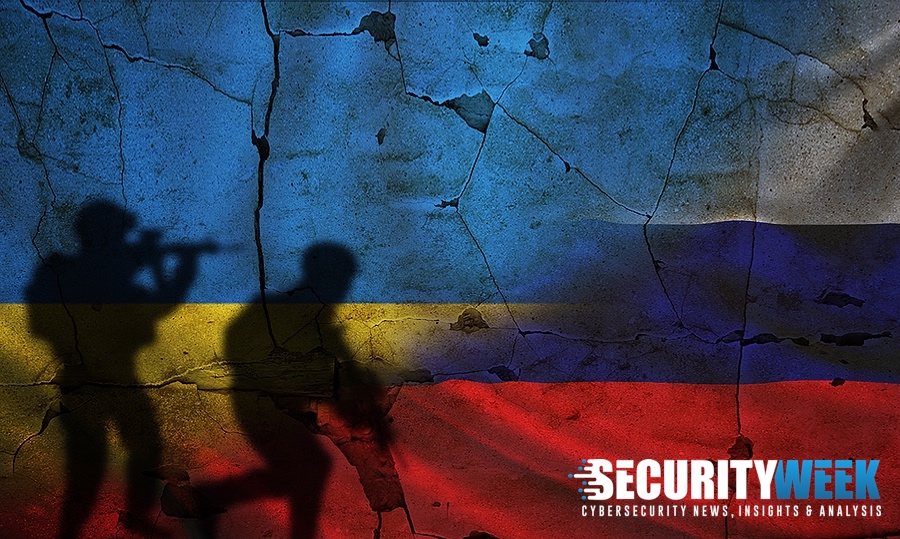Marking the first anniversary of Russia’s war against Ukraine, several cybersecurity companies have published reports summarizing the impact of various types of cyber operations, just as the United States has issued a fresh warning for the West.
In the weeks before and immediately after Russia launched its war against Ukraine on February 24, 2022, Russia appeared to intensify its attacks in cyberspace, with distributed denial-of-service (DDoS) attacks, disruptive wiper malware, and misinformation campaigns.
While everyone has been concerned about highly disruptive and even destructive cyberattacks against Ukraine’s critical infrastructure, there have been no reports of a major incident to date, and Ukraine continues to improve its cyber defense capabilities.
However, on Thursday, the US Cybersecurity and Infrastructure Security Agency (CISA) urged the United States and Europe to be increasingly vigilant, and reminded potentially targeted entities about the resources it provides for increasing resilience to cyberattacks.
“CISA assesses that the United States and European nations may experience disruptive and defacement attacks against websites in an attempt to sow chaos and societal discord on February 24, 2023, the anniversary of Russia’s 2022 invasion of Ukraine,” the agency said.
Several cybersecurity companies have published reports in the past week summarizing what they have seen in cyberspace since the start of the war.
According to Google, Russia ramped up its cyber operations by 250% in 2022 compared to 2020, with an increase of more than 300% in attacks aimed at NATO countries.
Mandiant, which Google acquired last year, saw more destructive cyberattacks in Ukraine in the first four months of 2022 than in the previous eight years. However, the company said attacks slowed down and appeared less coordinated after that initial wave.
Google has also described Russia’s information operations, which sought to undermine the Ukrainian government and fracture international support for Ukraine, while helping Moscow maintain domestic support for its invasion. The internet giant said it disrupted nearly 2,000 instances of such Russian activity on its platforms in 2022.
The company also pointed out that the military operation triggered a significant shift in the Eastern European cybercrime ecosystem, with some groups splitting up over politics and others losing important members.
This is confirmed by a report published on Friday by threat intelligence company Recorded Future, noting that activity on Russian-language cybercrime forums has decreased as a result of Russia’s military mobilization.
The company also describes the ‘brain drain’ of Russian cyber professionals. Some threat actors may have been conscripted, while others may have been among those who migrated to neighboring countries to avoid being drafted in the military.
“As Russia experiences a ‘brain drain’ of IT professionals, these now-fracturing organized cybercriminal cartels will likely become more geographically decentralized, in turn making their relationships more diffuse,” Recorded Future said.
Both Recorded Future and security operations company ReliaQuest reported seeing a resurgence in hacktivism — particularly crowdsourced hacktivism — following the start of the Russia-Ukraine war. Hackers supporting both sides have launched attacks, but their impact has been limited.
These hackers — who are both politically and financially motivated — “have become symbolic in the public’s perception of the ‘cyberwar’ raging parallel to the war in Ukraine,” Recorded Future said.
ReliaQuest also noted, “Hacktivists now represent one of the biggest cyber threats to most businesses, in terms of how likely attacks are and how much damage they’ll cause to business operations. The suspected ties between some hacktivist groups and Russian intelligence services will probably only strengthen their resources and technical skills.”
Internet security company Cloudflare has also been keeping a close eye on trends since the start of the war one year ago. Cloudflare reported seeing significant shifts in internet traffic from the East to West as Ukrainians fled the war, with country-wide traffic dropping as much as 33% since the invasion was launched.
Electrical power disruptions and physical damage to fiber optics cables caused many internet outages, but Cloudflare noted that “Ukraine’s networks have remained resilient from both an infrastructure and routing perspective.”
Application-layer attacks seen by the company increased by 1,300% shortly after the war started, with most attacks targeting government, financial and media organizations.
Industry professionals have applauded Ukraine for its resilience against Russian attacks.
“Ukraine has been surprisingly resilient against the attacks, showing a skill and dedication from the defenders that the Russian attackers certainly didn’t expect. Russia has some extraordinarily skilled threat actors at their disposal, which makes Ukraine’s defense even more impressive,” commented Mike Parkin, senior technical engineer at Vulcan Cyber.
Phil Neray, VP of cyber defense strategy at CardinalOps, noted, “The reason recent attacks haven’t caused more widespread damage is that Ukraine has significantly boosted its continuous security monitoring capabilities in the past few years, with the technical assistance of western allies, so they can quickly detect these attacks and respond to them before they can have a major impact. They also moved their critical data from on-premises servers to the cloud, where it could be better protected. Gaining more high-fidelity detections at all security layers (endpoint, network, email, IAM, cloud, etc.) — and moving to the cloud — are the key lessons we can take from the past year.”
Related: Russia-Ukraine: Threat of Local Cyber Operations Escalating Into Global Cyberwar
Related: Russian Espionage APT Callisto Focuses on Ukraine War Support Organizations
Related: Russian Use of Cyberweapons in Ukraine and the Growing Threat to the West














